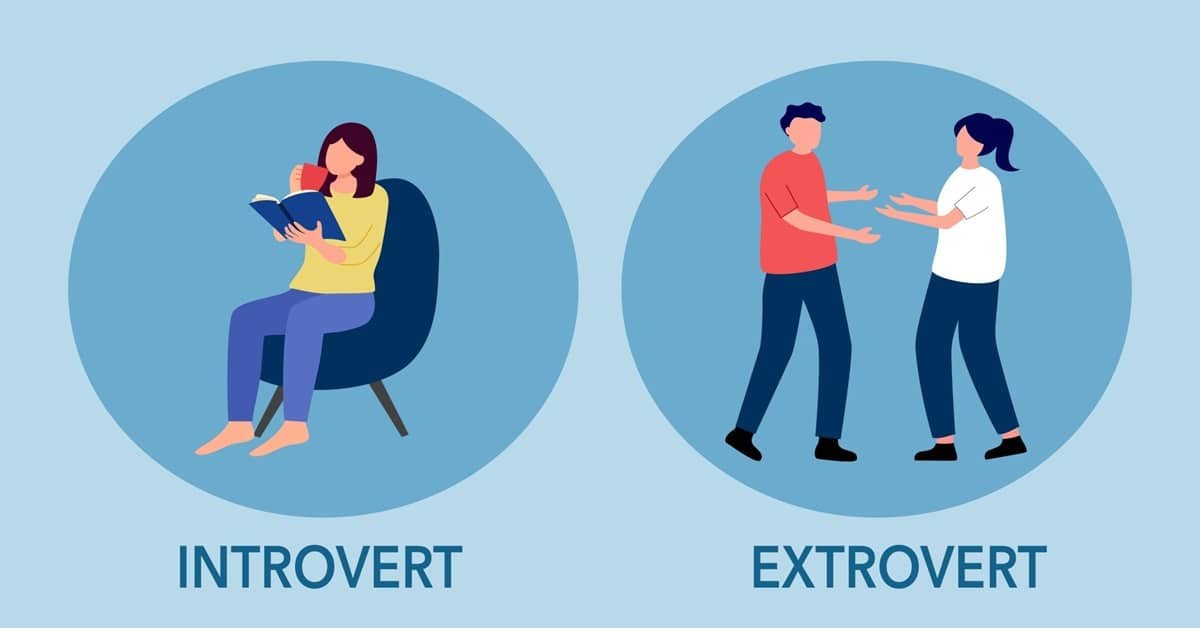Here’s an overview of what it means to be an introvert, including characteristics, commonly held myths, strengths, challenges, and how introverts interact with the world.
What is an Introvert?
An introvert is someone who tends to feel more comfortable and energized in solitary or low-stimulation environments rather than in large social gatherings. Introversion is a personality trait that can be measured on a spectrum, with individuals displaying varying degrees of introverted tendencies.
Characteristics of Introverts
- Preference for Solitude: Introverts often recharge by spending time alone or with a small group of close friends rather than in large crowds.
- Thoughtful and Reflective: They may take time to think before speaking and often prefer to process information internally.
- Deep Conversations: Introverts may favor meaningful one-on-one discussions over small talk.
- Observation Skills: They often excel at observing their surroundings and may notice details that others overlook.
- Sensitive to Stimulation: Introverts can feel overwhelmed in loud, chaotic, or highly social environments.
Common Myths About Introverts
- Introverts Don’t Like People: Many introverts enjoy social interactions but may prefer smaller gatherings.
- Introverts Are Shy: While shyness can be related to introversion, not all introverts are shy; some may be very outgoing in the right contexts.
- Introverts Are Anti-Social: Introverts thrive in social settings but may need to recharge afterward; their social preferences differ from extroverts.
- Introverts Are Always Quiet: While introverts may speak less in large groups, they can express themselves passionately and vocally in familiar settings.
Strengths of Introverts
- Deep Focus: Introverts often excel in tasks that require concentration and critical thinking.
- Independent Work: They may prefer and thrive in roles that allow for autonomy and self-direction.
- Empathy and Listening Skills: Introverts are often good listeners, making them empathetic and supportive friends or colleagues.
- Creativity: Many introverts are creative thinkers who approach problem-solving from unique perspectives.
Challenges Faced by Introverts
- Networking and Social Pressure: Introverts may find networking events or large social gatherings draining or intimidating.
- Misunderstandings: There can be misconceptions about introversion that lead to social stigmas or negative perceptions.
- Overstimulation: High-energy environments can be overwhelming and lead to fatigue or anxiety.
- Limited Opportunities in Group Settings: Introverts may struggle to be heard in group discussions where more extroverted individuals dominate.
How Introverts Interact with the World
- Preferred Social Settings: Introverts typically enjoy intimate gatherings, meaningful conversations, and quiet activities. They may prefer spending time with a few close friends rather than attending crowded events.
- Work Environments: Introverts often thrive in work environments that allow for independent work, remote options, or quiet spaces. They may also excel in roles that require deep thinking and problem-solving.
- Communication Style: Introverts may communicate more effectively in writing (e.g., emails, reports) than in impromptu verbal discussions.
- Recharge Needs: After social interactions, introverts usually need downtime to recharge. This could include spending time alone, engaging in hobbies, or enjoying quiet activities.
FAQs based on Introvert
ere are some frequently asked questions (FAQs) about introverts:
1. What is an introvert?
An introvert is a person who tends to gain energy from solitary activities and prefers spending time alone or in small groups, as opposed to large social gatherings. They often find socializing draining and need time alone to recharge.
2. What are the main characteristics of introverts?
Common characteristics include:
- A preference for solitude or quiet environments.
- Deep, reflective thinking and observation skills.
- Enjoyment of meaningful conversations rather than small talk.
- Sensitivity to noise and high-stimulation environments.
3. Are introverts shy?
Not necessarily. While shyness involves a fear of social judgment or anxiety in social situations, introversion is about energy preference and how one processes the world. Many introverts are confident and outgoing in comfortable settings.
4. Do introverts dislike people?
Introverts generally enjoy social interactions but may feel overwhelmed in large groups. They often prefer spending time with close friends or engaging in deeper conversations rather than participating in large social gatherings.
5. What are some strengths of introverts?
Introverts typically excel in:
- Deep focusing on tasks and issues.
- Independent work and self-direction.
- Empathy and active listening.
- Creative problem-solving and innovative thinking.
6. What challenges do introverts face?
Common challenges include:
- Feeling drained after social interactions.
- Difficulty with networking and self-promotion.
- Being misunderstood as aloof or uninterested.
- Overstimulation in chaotic environments.
7. How can introverts improve their social skills?
Introverts can enhance social skills by:
- Practicing conversations in low-pressure environments.
- Setting small networking goals.
- Engaging in activities they enjoy where meeting people is a natural outcome.
- Learning to share their thoughts and experiences gradually.
8. What types of careers are suitable for introverts?
Suitable careers may include those that allow for independent work or deeper focus, such as:
- Writing, editing, and journalism
- Research and analysis
- Programming and software development
- Graphic design
- Counseling and therapeutic roles
9. Can introverts be leaders?
Absolutely! Many successful leaders are introverts. They may bring unique qualities like thoughtful decision-making, active listening, and empathy to their leadership style.
10. How can extroverts better understand and support introverts?
Extroverts can support introverts by:
- Respecting their need for alone time.
- Encouraging meaningful conversations rather than forcing small talk.
- Creating a comfortable environment for them to share their thoughts.
- Recognizing and valuing their contributions, even if they might not voice them loudly.
Conclusion
Being an introvert is a valid and important personality trait that brings unique strengths to both personal and professional settings. Understanding introversion can help foster better communication and collaboration between introverts and extroverts alike.

